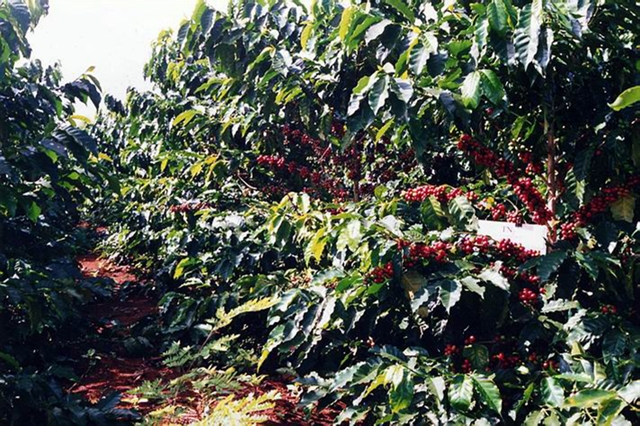 Society
Society


|
| Việt Nam has 664,000 hectares under coffee and annual output is more than 1.5 million tonnes. VNS/VNS Photo |
HCM CITY Đắk Lắk coffee farmers and enterprises should produce speciality coffees with higher added value, experts have said.
Speaking at a recent seminar held in the Central Highlands province by the Ministry of Agriculture and Rural Development, the Việt Nam Coffee-Cocoa Association and the province, coffee processors, researchers and scientists discussed the definition, standards and benefits of speciality coffees and ways to expand markets for them.
Trịnh Đức Minh, chairman of the Buôn Mê Thuột Coffee Association, said Việt Nam has excellent potential to produce such coffees, with the Central Highlands having ideal weather and soil conditions for them.
Đắk Lắk coffee products are sold to 62 countries and territories.
In the 2017-18 crop, the total area under coffee in the province increased marginally to 204,808ha.
The total output was 459,785 tonnes, also slightly higher than in the previous crop, but the number of farmers growing specialty coffee was very small.
In the entire country only 50 farmers and companies grow and process speciality coffees and their annual output is 200 tonnes.
To develop speciality coffees, Minh proposed adding them to the list of national products, which receive support under the National Product Development Programme, offering incentives to farmers and processors, enhancing promotion programmes and seeking new markets for the products.
The Buôn Mê Thuột Coffee Association would guide farmers in growing these coffees and create links between farmers and processing firms, he added.
Y Giang Gry Nie Knong, deputy chairman of the Đắk Lắk People’s Committee, said coffee was the key farm produce of the province, and it would focus on increasing the output and quality of the product rather than the farming area.
It would prioritise loans for farmers and enterprises producing speciality coffees and encourage them to adopt modern technologies, he added. VNS




